Accra Goes to the Opera
By 5pm, Sunday the 25th of September, the International Conference Center was on lockdown. Unless you were an important person, or had some existing rapport with any of the organisers, under no circumstance were you going to be allowed into the main hall’s reception.
From the security at the gate, up to the entrance of the building proper, the reception was cold. I’m in the habit of turning up for events significantly before time to get a sense of how things are taking off, from stage preparations to sound checks and lighting adjustments, to observing the musicians and other performers prep themselves for the show. 5pm was far too early for the gatekeeper’s comfort, and no amount of explanation would let the “lady in charge” reconsider her stance.
I was made to feel like an imposter trying to breach a high security zone, and after buying my ticket right there, and explaining that the tickets were not the issue that needed confirmation, but rather the matter of me being permitted to move about in the auditorium, I was made to understand that none of what I said mattered.
I was told to stand outside and wait till six, a full hour later, when the gates will be open. I wouldn’t want to dwell on the brusqueness with which the ticket seller (who couldn’t bother himself with a smile) reclined in his chair and ordered people to buy tickets from him, dishing out curt replies to one old man’s enquiries about the night. As further proof that not all of us were equal in our love for good music, a small family of private “guests” were ushered right past me into the reception, where miscellaneous baroque pieces played on speakers for their entertainment.
I found a spot and stood to wait.
Several minutes after, someone must have been touched, because he - obviously holding very different opinions about how paying guests should be treated at the venue, led me past security into the main hall of the conference center, and gave me permission to walk about and do my thing. This was quickly turning into a who-you-know affair.
Further handholding by an acquaintance from high school gave me the chance to interact with the people I’d paid to come and watch, and even make contact with some other exciting personalities of the Accra Symphony Orchestra. The musicians themselves are passionate people, humble in character yet very proud of what they have achieved. They were all genuinely nice, a far cry from the initial welcome I received.
The main hall was scattered with the privileged few who got to sit there listening to jazz blaring from the PA system, and watching series of promotional content projected on the overhead displays. Backstage, Benedictus Acolatse, the young maestro of the ASO was coaching his people like a team captain. Besides getting an interesting peek into the behind-the-scenes life of the orchestra, there was nothing else to do besides pace about and listen to complaints as some VIP guests, who had been held up until six on the dot, weren’t ushered to their seats properly. I chipped in a helping hand at some point, and couldn’t ignore how poorly this important part of the event was being handled.
The only pleasant aspect of the long wait was the recording of Andrew Lloyd Webber’s Think of Me, performed by Esther Adams and Kojo Sam, with Benedictus and Amos on a piano, projected on the screens. Esther’s coloratura left a strong impression on me, raised my expectations and, more interestingly, revealed something concerning what the ASO and its singers, Lumina, were about.
30 minutes after the stated time of the concert, the MC, offstage, introduced the orchestra to the audience and declared a “new era of orchestral and operatic music with indigenous nuances”. Accra had finally come to the opera.
The opening piece definitely started with a Mozart, before turning into a medley of orchestral and operatic pieces stitched together for the occasion. As such, I couldn’t follow any single idea long enough before it changed to something else.
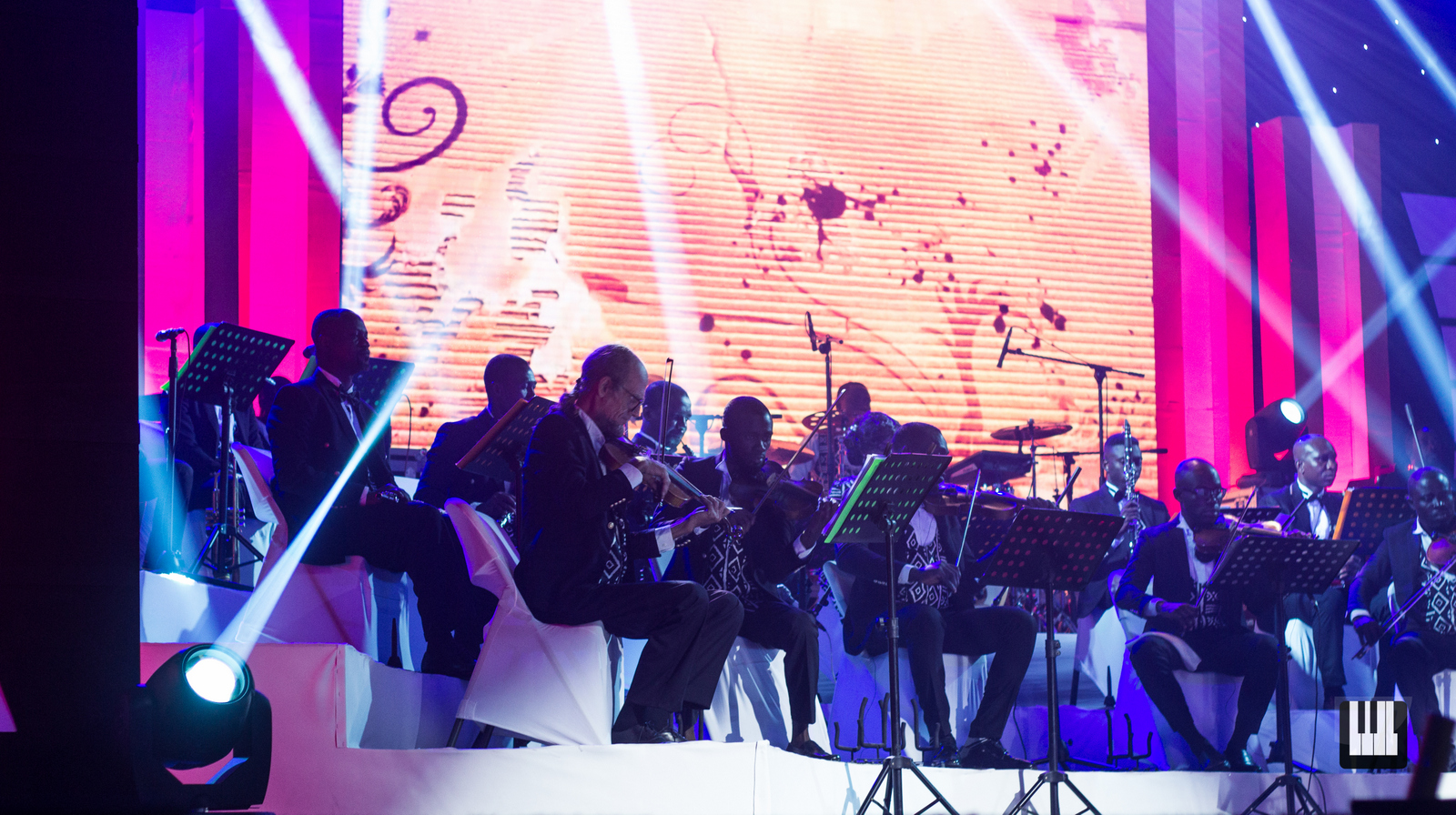
Something, however, was immediately obvious. I don’t know why I failed to notice it earlier, but this concert was as much a visual as it was an aural performance. I’m reminded of William C White’s observation that, one reason people still flock to concert halls and pay to listen to music they’ve heard many times before and can easily access for free on the Internet, is that they don’t only come to listen to the music. They come to see a performance.
He further pointed out the aesthetics of the orchestra, specifically the massive string section all bowing in identical motion, sweeping this way and that in perfect uniformity. Orchestral music is a very visual experience. And the same is even more obvious for opera - actual opera, not this evening's parade of popular numbers. Opera is story: acting that people come to watch, and not just listen to; where what is seen is integral to how the plot and characters are communicated.
What this evening’s performance lacked in complete narrative, it made up for in spectacular cinematic lighting, dramatic overhead angles from the camera men and, well, a live symphony orchestra.
Right off the bat, we were drowned in too much information. No concert program was made available, nor was there any persistent visual indication of what was to happen. The MC’s voice rattled what was to be expected from the first part of turned out to be another three-act performance. I quite remember him tell the audience we were going back to the 13th century (I recall no 13th century music - everything sang was written well after), and then he mentioned something about Verdi and Figaro and after several amusingly pronounced Italian words, the orchestra set to work.
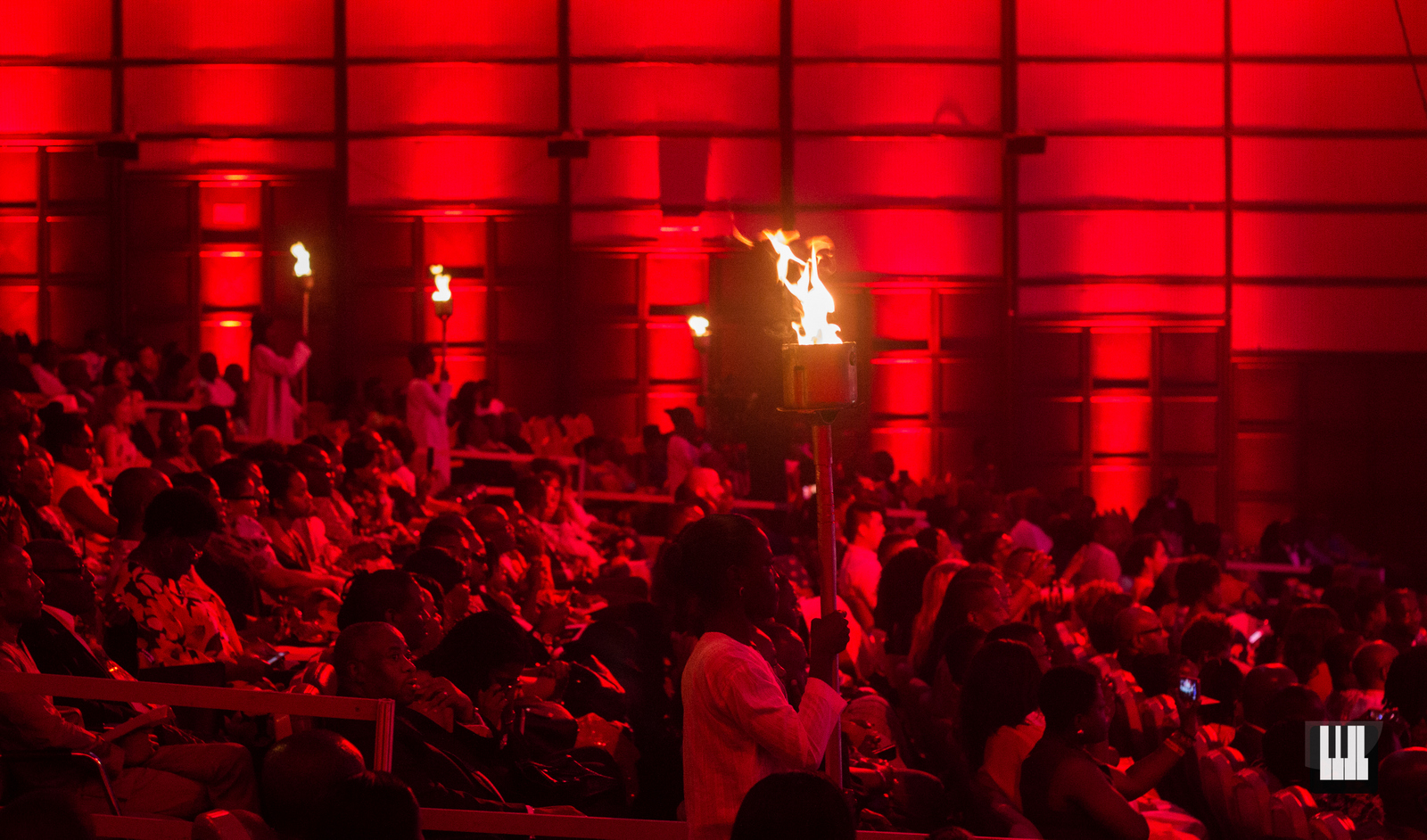
The first part began with O Fortuna from Carl Orff’s Carmina Burana. The drama of the famous chorus was heightened by the torchlight procession and the fireworks on stage. And while the performance was stellar, perhaps I was more fascinated by the fact that ten singers could make such a racket. Lumina, the chorus that performed with the ASO, will very likely match the volume of our largest choirs without much effort. They clearly surpassed what the backing orchestra could produce.
What followed the first chorus is best described as a pageant of the most enduring music of Europe’s operatic tradition. The anvil chorus from Verdi’s In Trovatore (which saw two giant anvils on stage, talk about props!), the Flower Duet from Delibes’ Lakmé , the Chorus of the Hebrew Slaves from Verdi’s Nabucco and the Pavane translated into Fante followed after each other in rapid succession, leaving little room for taking stock and coming to terms with what we were hearing.

After the show-stopping Largo al Factotum from Rossini’s Barber of Seville, the excitement was dampened with a mellow solo before concluding in what was meant to be a climactic Queen of the Night Aria by Esther, from Mozart’s The Magic Flute.
While the audience was moved to clapping anytime the soloist hit the famous high notes of this aria, the cadence left me wanting. Mind you, this is probably the most famous aria in existence today, done to death by the world’s most gifted performers. As such, it is only natural that comparisons will sprout in your mind when you hear your favourite passages. For me in particular, at passage of triplets at “Alle Bande”: this nuanced performance left a remarkable impression on me. The three “Hört”s at the conclusion of the piece were rather barren, compared to what I’m accustomed to hearing.
And that is how the first part ended.
The second part of the event, unlike the first, experimented with pop music and traditional classical music. I will be honest, most of this was not as memorable as the first part and, coupled with the difficulty in tracking what was actually going on, song after song after song left me overwhelmed and numb. I have said this before, and I must reiterate: in my honest opinion, music of such nature shouldn’t be left to the ear alone to appreciate. So much of the human spirit goes into the music than what is merely heard, and while some pieces can be remarkable and exciting and easily accessible (Mozart, mostly), a lot of contextual information will go a long way to making the experience of the music richer. Especially since our social context is vastly different from that in which the music was composed, certain things the composers might have taken for granted will be, for us, refreshing perspectives that will further immerse us into the culture and the music which we celebrate.
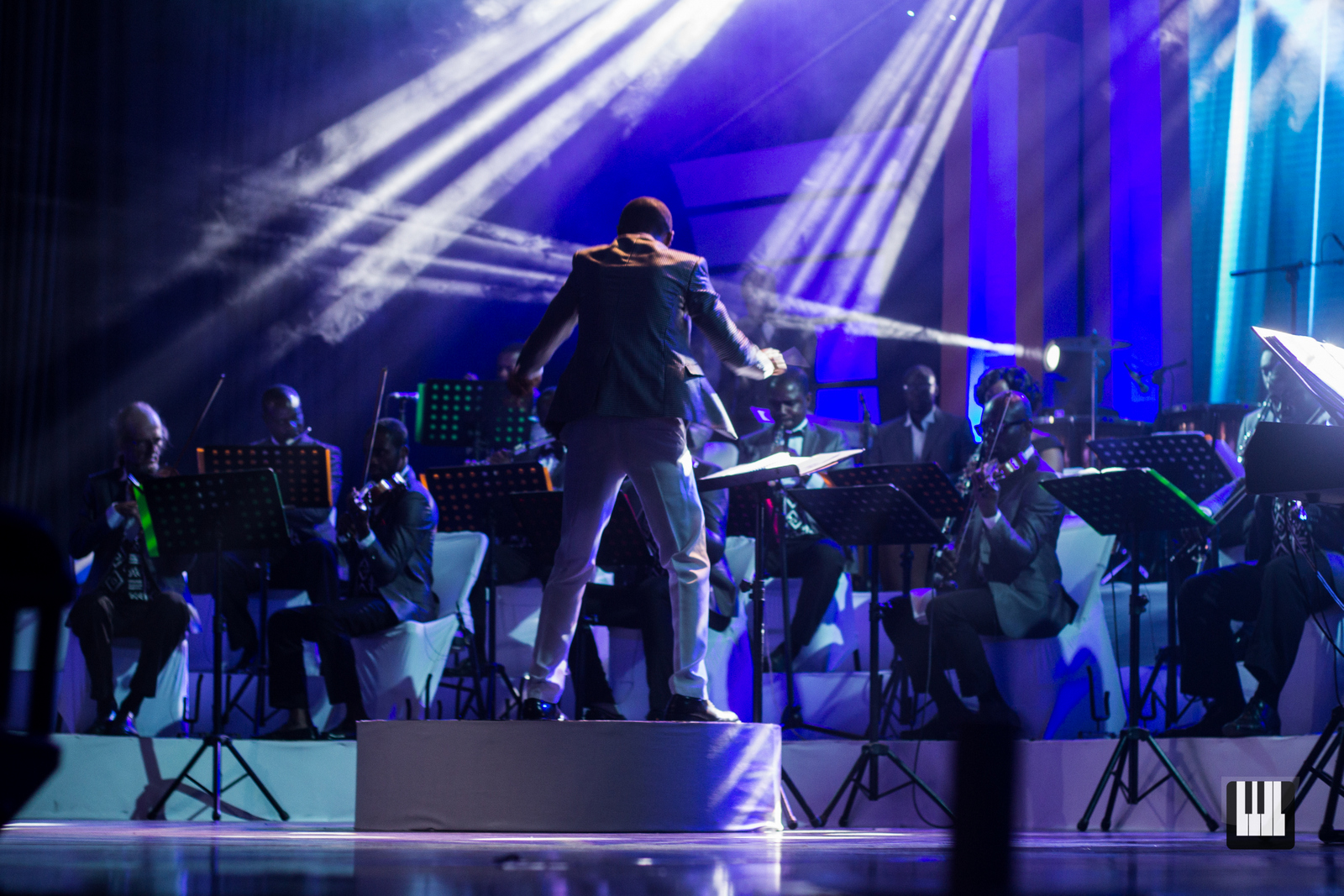
Unfortunately, the most memorable moment of the second part of the event was Beethoven’s fifth. After the feeblest opening of that famous motif, the music gave way to a visually dazzling and aurally dissatisfying disco reimagining of that movement, largely based on the first four notes looped ad nauseam. Despite the virtuoso drumming and other remarkable execution from the musicians, I thought this was the weakest moment in the entire night’s performance. A poor idea, well managed.
Then came Otabil on stage, to talk about the Accra Symphony Orchestra, where it came from and what it has come to do. And with that, those loose strands I was gathering from the beginning started coming together.
The idea of a symphony orchestra was proposed to Dr Mensah Otabil by a musician friend. With sponsorship from the pastor’s own funds, the Accra Symphony Orchestra was set up, and musicians employed to make music for the city. Not for ICGC. After acquiring instruments and musicians, singers were put together under the name Lumina, and those are the voices we heard.
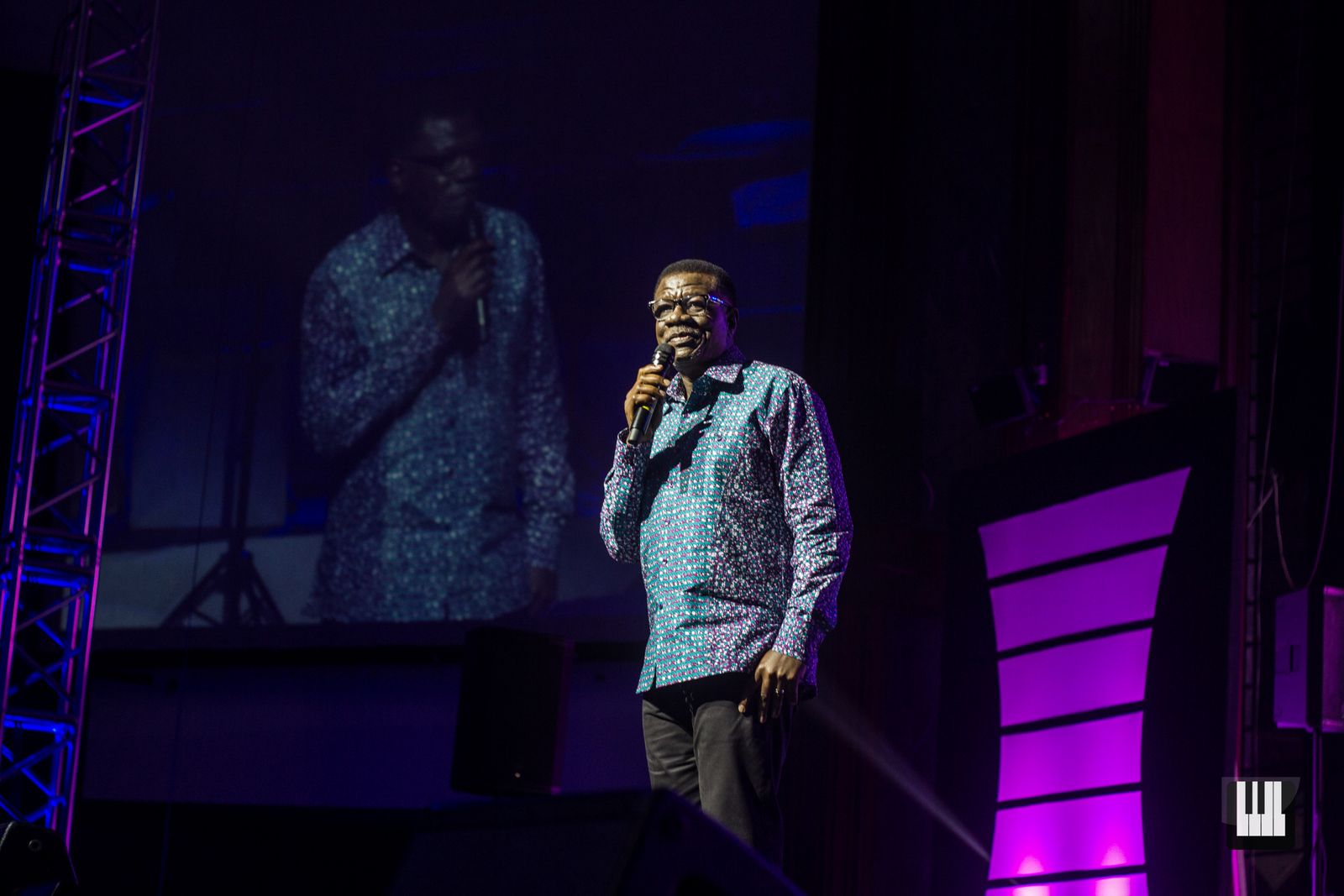
Unlike other institutions Choral Music Ghana has featured, the ASO does not belong to a church. It was set up by a pastor, which continues the theme of church sponsored art music we’ve noted several times. But the crucial difference here is, the ASO is not bound to the personal ministry of its founder, and so is not restricted to what it can sing, and where it can go.
Which is why it is entirely convenient for a pagan Roman hymn to Fortune to be performed on stage, because Carl Orff’s music itself stands as a monument of musical expression. The ASO is about one thing first: music, and despite the obvious religious inclinations of its constituent musicians, music is not relegated to the background as a means to an end. And that is why I love them!
Crucially, the ASO and Lumina are not a collaboration of volunteer voices and talent. They are an ensemble of paid professionals. If you have read on this site about musicians struggling to make ends meet, Otabil’s initiative is a massive leap into a future that is hoped for, yet not very common in Ghanaian music. If there is one man who has taken art music in Ghana and made it serious, it is Dr Mensah Otabil, and I thank him for this brave new world he’s pushing us towards.
Part three, Otabil announced, was dedicated to African music, given the orchestral and operatic treatment. The pieces were few, yet monumental: the founding musician of the ASO, the late Nana Danso Abbeam would have his music performed first. Then we were to hear from Manu Dibango, Fela Kuti and of course, Osibisa.
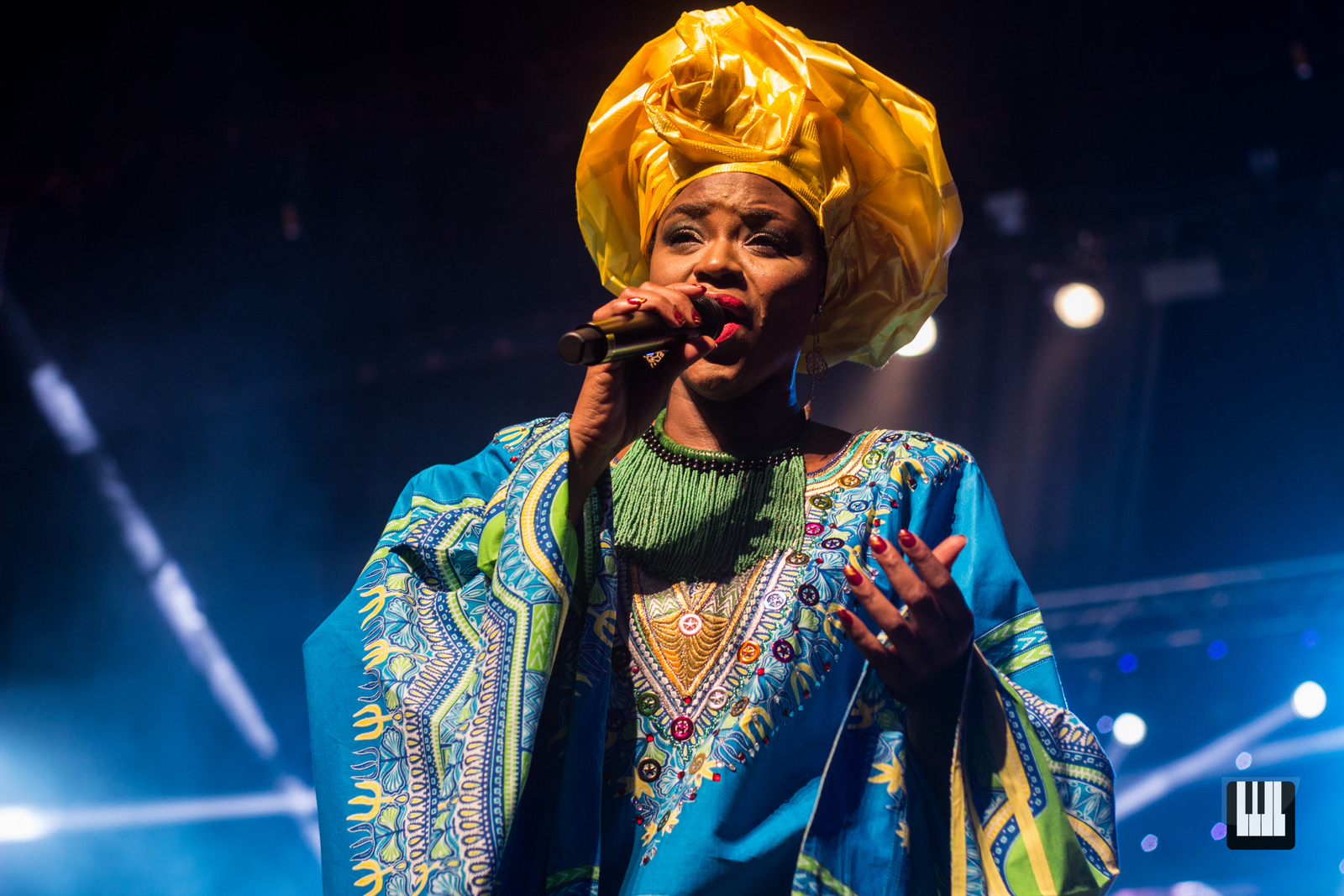
Part three began with a Stravinsky-esque piece that stretched out like a landscape of African idioms rather than a linear progression of musical ideas with a well-worn narrative structure. Of course, this beats whatever Stravinsky might have been pursuing when he tried to capture native rituals in music in the Rite: this piece had actual melody in it. Avant-garde, with a respectful nod to tradition, and the prominence of acoustic instruments over the electronic keyboards kept it balanced, authentic and earthy, and startlingly beautiful. For only the second time that night, I was completely captured by the music.
Following this, Osibisa’s solemn Woyaya gave way to Dibango’s Makosa and Fela’s Lady. At this point, we were experiencing a contemporary pop concert.
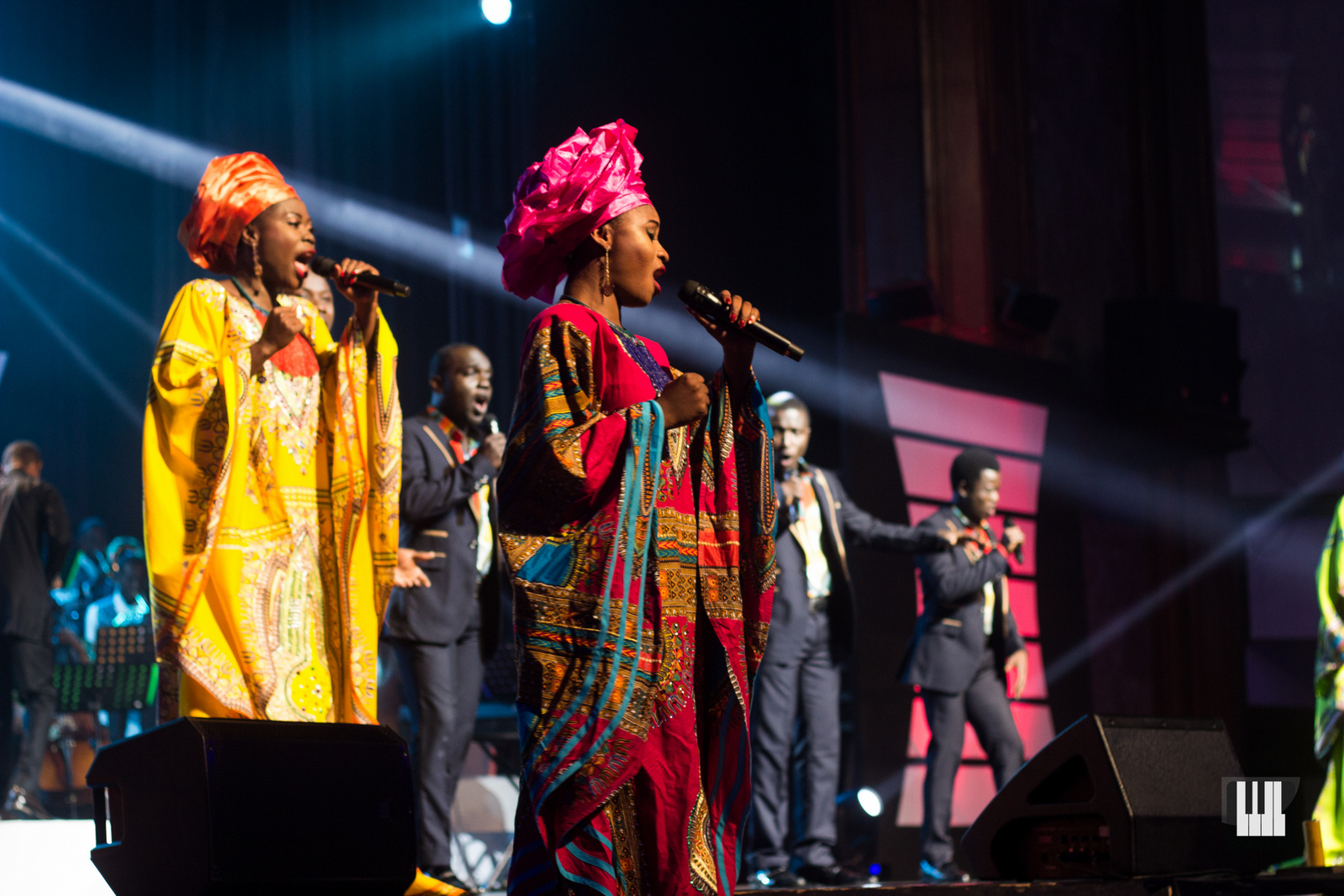
In introducing part three to the audience, Dr. Otabil highlighted what the MC only hinted at, the indigenous nuances of a Ghanaian Symphony Orchestra. He teased the idea of a Fela Kuti Symphony, among other experiments his people were considering. The glimpse of his vision he shared on stage confirmed my suspicion that the Accra Symphony Orchestra, the pastor’s musical gift to the country, is about more than music; it is a legacy building enterprise.
Right from the start, everything about this event was geared towards sculpting an image that had obviously been carefully thought through well in advance. This was show business, contemporary entertainment propaganda meant to shape people’s opinions, put new names on their lips, and burn images in their minds. Nothing was spared. As much glitz and glam was projected by the quality of the production to set it apart from anything we have seen in this space. Otabil, with this gesture, has set Lumina and the ASO on a very different trajectory. This was not just music; it was branding done well.
The fact that I look forward to seeing Benedictus Acolatse in action, along with Esther Adams, Guy Bertrand and Isaac is evidence of how effective this effort has been. The star building potential of this ensemble is enormous, and if this effort is kept consistent, we will witness a renaissance of orchestra and opera in Ghana.
Most of us are familiar with Otabil’s ministry and his efforts at building not only brilliant men of faith, but achievers who actually move society forward. With his eyes set on serious music, and his pedigree backing this venture, I am confident that we are being ushered into the next era of serious art music in this country. It only gets better from here.
As usual, the photos of the event are available here.